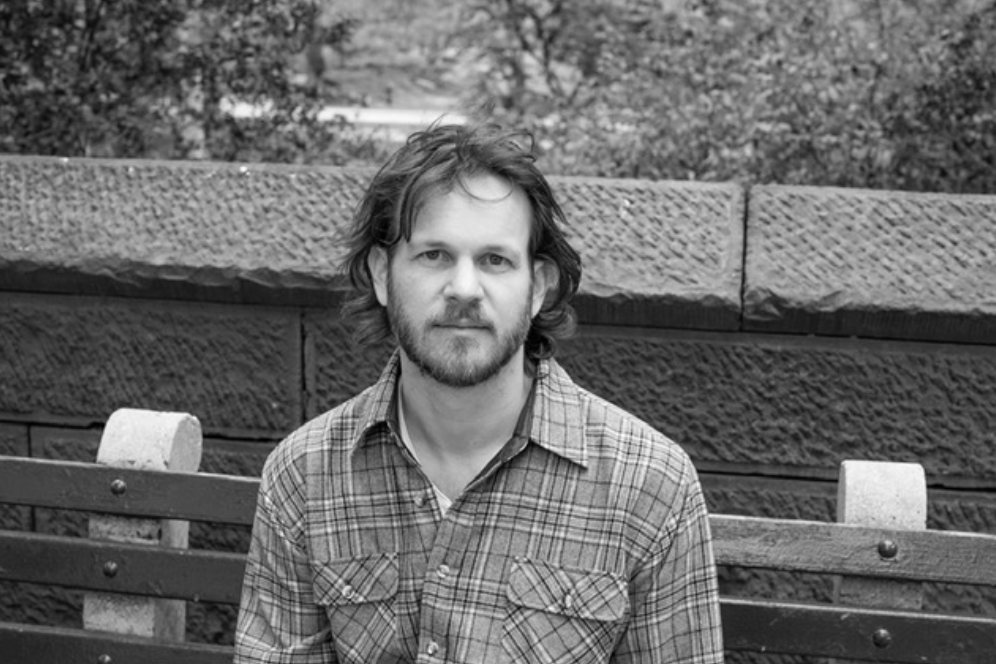Sheila Margaret Motton Prize Honorable Mention, selected by Daniel Legros Georges
Fern and Shadow
This severed earth, a veined vapor.
Its name is prunes easily in water. Its name—
fern and shadow. An understudy,
porous.
On the subway, I hear the others lap
against their collars. Eyes
closed, elbows to knees, a woman
holds her head
aloft in her hand.
Lifting up his shirt, a man removes
a bandage from a rash.
Faithfully, it bleeds.
These arms that coil at night, a nest,
unravel in the morning,
a narrative.
This apology. Asked to clench or coax,
read or ruffle,
to burrow or bury.
This freight. Call it a body,
if that helps you.
Gravity
takes under its wing a horseshoe,
apple, the moon, bonds page
to table, head to
cushion, contriving a whirl-
pool, a spinning world,
so that in water a penitence,
in glass a mayhem, in pendulums
constancy. Our love
appoints its kingdom,
but gravity does not elect
or refrain; it effects
its spell over hammer and feather
alike, pebble and petal,
so each at the same rate
falls. And baptismal
it can carry straight away
lofting in a wave
an entire person, whispers and all
converted to a thud on the wet
bathroom floor. Tired after
work, too much weight
bearing down on one knee,
the entire body
carousels, a tilting and jilted mass,
fluttering as pinion as hum
as smoke rising from
a candelabrum.
The arms, effervescent, flare
toward the sink, then the floor—
to break the fall with the body’s own.
To bend to one’s will, we often
say, but what if
the will is already bent?
As I walk out of Alesci’s,
my bag of groceries
rips open. To hunch is to orbit,
to bend shadowy over tiles—
skin, hair, and sleeves
bulbous as the tides.
Even at my most poised,
I am superposed—
placed on the verge of entering
or exceeding the earth,
revolving around an ever-
revolving orb, both
of us circling one of the
many bright minutiae
in the universe, that dark effusion
boundless but still to an extent
suggestive of embrace.
There are no fragments,
only wrinkles. When I hit
the carpet,
do not walk over me. Please hear.
Star Gazers
The way we look at the stars,
the stars look at us, and make
constellations—not of our lives, skittish, but our deaths, dark
and steadfast. In the morning,
beneath a bedspread or under
a bridge, each exit intrudes, an island in
an archipelago of shadow,
and the stars have a game of it,
divining a pitchfork, a painter’s easel, a wagon, a conglomeration
called Madeline’s hair.
But sometimes the stars are hasty—
for months a man lies in St. Vincent’s after
an intracerebral hemorrhage,
hardly moving, except to change
the channel of a television in the corner or ask the priest
to leave. Although faint,
he’s lined up in a row with three others
in his wing to form the lip of a cup.
The stars look and draw
the constellation, its points,
in their almanacs, and then embellish it with emanating beams.
They tell stories of how the cup
was lost, and sought by knights. The man
rises, once a day, from bed and, clutching
parallel bars, tries to walk
in a room of mirrors. His point
of the constellation wavers, and some insist he’s a planet.
Eventually, he lets go for three
steps, then for five. Before the mirror,
he rehearses greeting loved ones and strangers,
and soon he’s walking down
Christopher Street towards the Hudson—
the diameter of the cup widening, farther and farther, beyond all
proportion. That’s just a satellite,
says one star. No, no, says another.
It’s too fast. Look at it falling across the earth.
 Adam Giannelli is the author of Tremulous Hinge (University of Iowa Press, 2017), winner of the Iowa Poetry Prize, and the translator of a selection of prose poems by Marosa di Giorgio, Diadem (BOA Editions, 2012). His poems have appeared in the New York Times Magazine, Kenyon Review, New England Review, Ploughshares, FIELD, and elsewhere. He is a doctoral candidate in literature and creative writing at the University of Utah, where is a graduate research fellow at the Tanner Humanities Center.
Adam Giannelli is the author of Tremulous Hinge (University of Iowa Press, 2017), winner of the Iowa Poetry Prize, and the translator of a selection of prose poems by Marosa di Giorgio, Diadem (BOA Editions, 2012). His poems have appeared in the New York Times Magazine, Kenyon Review, New England Review, Ploughshares, FIELD, and elsewhere. He is a doctoral candidate in literature and creative writing at the University of Utah, where is a graduate research fellow at the Tanner Humanities Center.
